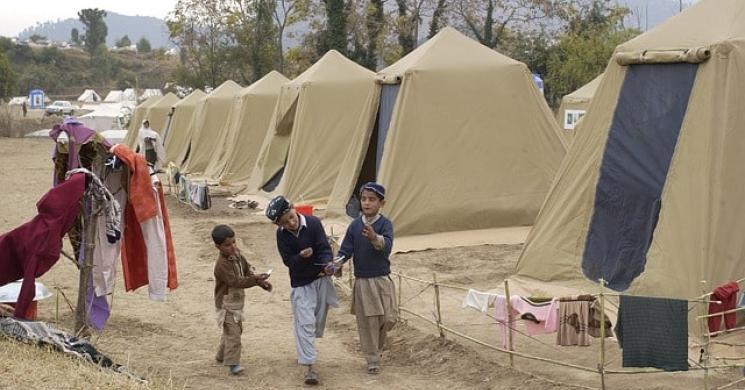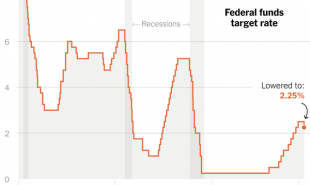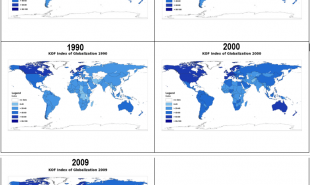
Trump Blasts Pakistan: Does This Hint At Changing Middle East Policy?
While announcing a new, get-tough policy on Afghanistan, President Trump blistered Pakistan for providing a safe haven for terrorists. Pakistan is ostensibly an ally and gets aid from the United States, so why is Trump suddenly so interested in calling Pakistan out now? Have Taliban fighters really been enjoying, at the minimum, “right of safe passage” through Pakistani territory so that they can give U.S. forces a bloody nose more easily?
This may indicate a shift in the overall strategy for confronting extremist groups and the governments that give them some form of aid. Nobody can realistically pretend that the Middle East and the ways that the United States relates to nations in that region isn’t a tangled-up mess. The U.S. gives aid to countries like Saudi Arabia, but documents that had been redacted until June 2016 indicate that the U.S. government had been sitting on evidence that Saudi Arabia had a larger role in the 9/11 attacks than any American or Saudi government official wanted to admit. Considering that Afghanistan and Pakistan share a long border, it wouldn’t be too out of line to assume that Taliban guerrilla fighters can slip over unmonitored parts of that border in order to improve their ability to conduct successful raids, even assuming that Pakistan is not providing tacit support by deliberately looking the other way.
.@POTUS: "The men and women who serve our nation in combat deserve a plan for victory, they deserve the tools they need." #Afganistan
— I Yam What I Yam (@Nvr4Get91101) August 22, 2017
A reasonable question to ask might be: What do we get out of propping up countries like Saudi Arabia and Pakistan when they obviously hate us enough to play both sides of the conflict? The “carrots and sticks” approach might work, but only if we’re willing to apply the occasional reminder that the stick exists.
One could argue that the U.S. applied the stick in Iraq and Afghanistan, but didn’t apply it very well. The U.S. pulled its military out of Iraq too early and it lead to the rise of ISIS. Despite initial successes in Afghanistan, the Taliban was able to regroup because the U.S. military wasn’t allowed to follow through. The U.S. military is not responsible for failure when Washington, D.C., suffers from ivory tower syndrome and keeps it on too short of a rein. When military forces are properly equipped and permitted to do what it takes to finish the job, they tend to do it very well, as evidenced by the Allies’ resounding victories over Germany and Japan in World War Two. Just the fact that Germany not only shows very little interest in starting another world war, but its citizens will also punch people for giving the Nazi salute, should be evidence enough that proper application of the stick does get results.
So Trump’s strategy may include using more of the stick to finally get the Taliban, ISIS, Al-Qaeda, and every other Islamic terror group relegated to the historical dust bin where they belong. A dead terrorist does not breed more terrorists. The dead body simply sends the message to those who may be thinking about joining radical Islamic organizations that this is what happens when somebody goes up against the United States. Rinse and repeat as needed until Islam becomes a true religion of peace because its followers are too scared of pissing off the United States of America to do anything else.
Education might work too, but educators who dare to go into a den full of hungry lions (or insane radical Islamists) will need to be protected by armed guards until it begins to work. I can applaud Malala for earning a place at Oxford along with everybody else, but this doesn’t change the fact that she’s lucky to be alive. After being shot by a terrorist, she was quoted as saying, “Through hate-filled actions, extremists have shown what frightens them the most: A girl with a book.” This means that educators will be at higher risk of becoming targets if they go into unsecured territories without protection. Education as a strategy could take decades purely because it will take time to convince elders and higher-ranking members of Muslim communities and more time to educate their children. So education as a serious counter-terrorism strategy will have to wait until those who are already violent extremists are killed or otherwise rendered impotent.

The good part is that educators can go in after the military has already done its part. Trump may be right that nation-building is not the job of the United States government, but this won’t stop private organizations from possibly going in to do the job of educating children once the military has already been there and cleared out the radicals. (Don’t be so eager to volunteer. Seriously.) The important thing is to make sure that the situation is relatively secure before putting educators’ lives at risk.
This will mean dealing more firmly with Islamic radicals than a muzzled U.S. military has been capable of doing for the past several years and it will also mean dealing with nations like Pakistan and Saudi Arabia that support terrorism or at least look the other way while terrorist cells operate in their territory. To these nations, the U.S. needs to be willing to tell them, “Deal with the problem or we’ll do it for you and you won’t like the results if we have to do it for you.” Then we should be willing to back it up with a big stick when we need to.
Read more by MarketSlant Editor









